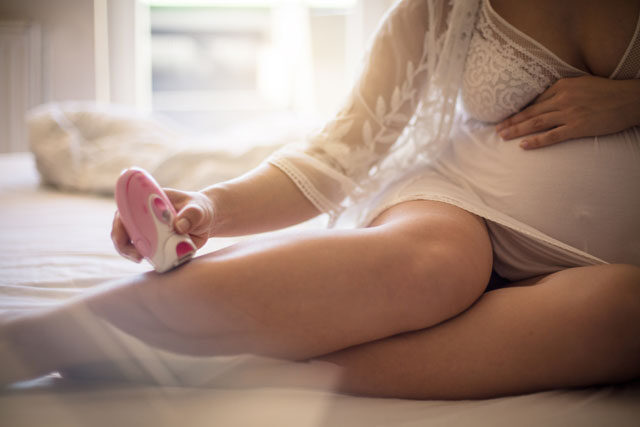Studies claim that about 20% of women are recommended bed rest at some point in their pregnancies. While many OB-GYNs still consider this an effective method of preventing preterm labor and other pregnancy complications, the American College of Obstetricians and Gynecologists doesn’t recommend it. They say there’s no scientific evidence that bed rest can improve the pregnancy flow. On the contrary, it is considered that such a method increases the health risks for pregnant women and their fetuses.
To understand who is right and who is wrong, let’s take a closer look at every aspect of this issue so that we can draw our own conclusions.
When Can Your OB-GYN Recommend Bed Rest?
While bed rest during pregnancy is not recommended, your OB-GYN may still tell you to stay in bed for some time. The reason is that some healthcare providers consider there’s nothing wrong with trying this kind of “therapy” to prevent and treat a range of pregnancy-specific health issues, including:
- Arterial hypertension, aka high blood pressure.
- Preeclampsia – a potentially life-threatening health condition that shows through high blood pressure numbers, protein in the urine, and edema.
- Placenta previa-provoked vaginal bleeding. This medical condition is characterized by the placenta covering the cervix either partially or totally.
- Premature labor (those are any labor happening before 37 weeks gestation).
- Intrauterine growth restriction is when the fetus is smaller than they are supposed to be at its gestation term.
- Thinning of the cervix or incompetent cervix. The latter means there is a high risk of your cervix opening prematurely.
Pregnancy with multiple fetuses may also become a reason for bed rest recommendation.
The Benefits and Drawbacks of Bed Rest?
Studies showed no evidence of physical activity restriction reducing the risks of preterm labor or other pregnancy pathologies. So, to be totally honest, there’s a little-to-no benefit of strict bed rest.
On the other hand, health care specialists point out a variety of negative consequences of the lack of physical activity during pregnancy. They include:
- the increased risk of forming blood clots and deep vein thrombosis;
- low birth weight in babies;
- demineralization of the bones, which means they become more fragile;
- constipation due to an inactive lifestyle;
- depression and anxiety are common among women who stay in bed during pregnancy, especially if they have older children to take care of;
- muscular weakness due to the lack of physical load;
- cardiovascular health issues, which may include worsening of blood circulation and dropping blood oxygenation;
- pain in your back and hips related to long lying in bed;
- exacerbation or appearance of heartburn
- trouble sleeping.
The facts speak for themselves. Strict bed rest is not what a pregnant woman needs, and while intended to help, it may produce a contrary effect and cause even more pregnancy-related health issues.
How Is Bed Rest Different from Activity Restriction?
Currently, the term and the essence of bed rest are displaced by another approach, which involves certain activity restriction that aims to help a woman preserve pregnancy while not causing any negative effects.
Women with a high threat of preterm labor are generally recommended to avoid the following activities:
- They shouldn’t lift weights exceeding 20 pounds (9kg);
- They should avoid or at least limit certain types of physical activity like strength training;
- Working more than 40 hours a week;
- Prolonged standing;
- Working night shifts;
- Doing the heavy physical job.
Overall, it means a woman should have sufficient rest, including night rest, as well as avoid excessive physical load that may provoke premature birth. At the same time, you may still go for short walks, swim, and live your regular life with just slight corrections to it.
Another thing that may not be recommended in certain circumstances is sex. Expecting mothers who have had an episode of stopped preterm labor should not get involved in sexual activity because it may intensify the contractions and eventually throw them into premature childbirth.
Strict bed rest implies staying in bed all the time.So a woman will need help from her family and friends. Some women may even be restricted from going to the restroom, so they should use a bedpan. Not only this increases the woman’s physical health risks but also becomes a severe blow to her emotional condition, which is not what we want with expecting mothers.
What if Your Doctor Recommends Bed Rest?
Although the ACOG doesn’t recommend bed rest, offering activity restriction instead, there is a chance that your OB-GYN recommends bed rest. How should you act in that situation? Should you follow your doctor’s advice, or should you listen to the recommendations of the mentioned institution? Actually, it’s up to you. However, you may ask your healthcare provider to explain their decision.
It’s important to know what exactly in your pregnancy makes your doctor think you need bed rest. Ask about the reasons and alternatives. Ask about the side effects of staying in bed for days, weeks, or even months. If you get no answers to your fair questions, you are free to do what you think is better for you and the baby.
Remember, every recommendation should be based on weighing the possible benefits and the potential threats. If you don’t agree with your OB’s advice, you should do the following things to feel fine:
- have enough rest;
- stay hydrated;
- eat healthily;
- physical activity should be moderate;
- stay calm and concentrate on the positives.
You should be medically reviewed at least once a week to keep track of your and your baby’s condition. If you adapt your way of life to the new circumstances, you have every chance to stay pregnant until at least 37 weeks, when your baby is officially considered ready for birth. So don’t worry and wait for the best date of your life – a date with your healthy newborn baby. Good luck!




